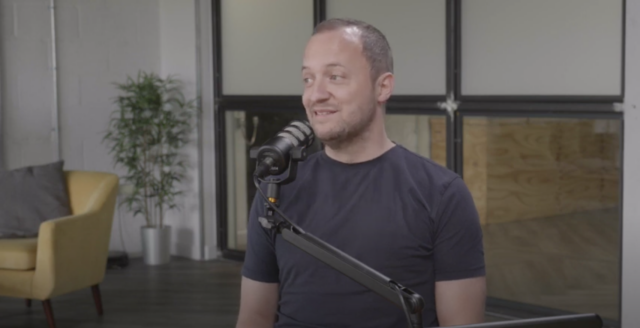
Hiring someone who’s ‘good with numbers’ isn’t enough.
What really matters is whether they understand the story behind the numbers — and can use that insight to guide smarter business decisions. Plenty of candidates can put together a tidy spreadsheet, close the books, or pass a technical test. But technical skill on its own doesn’t guarantee commercial impact.
That’s why interviews are so important. A CV can be polished. An exam can be memorised. But the right questions in the room will quickly reveal whether a candidate thinks like a partner to the business, or just a processor of data.
At We Do Group, we help companies hire finance professionals who don’t just crunch numbers — they connect them to real outcomes.
These questions will help you spot the difference.
It’s About More Than Technical Skills
Anyone can list ‘budgeting’, ‘forecasting’, and ‘variance analysis’ on their CV. But the words alone don’t tell you much. The real test is how a candidate approaches these processes – because that’s where you see whether they understand the bigger picture.
For example, asking “Walk me through your budgeting process” does more than check a box. It reveals how they structure their work, how well they collaborate, and whether they take ownership of outcomes or just simply follow instructions.
Similarly, “What are the key drivers in your business?” is a deceptively simple question. Strong candidates will immediately connect finance to the commercial levers that actually move the business — whether that’s sales volume, pricing strategy, customer retention, or supply chain costs. Weak answers, on the other hand, will stick to generic finance terms without showing a grasp of what really drives performance.
By moving past surface-level skills and digging into the candidates thought process, you’ll quickly separate those who can do the job from those who can make an impact.
Test Commercial Awareness, Not Just Accuracy
The best finance professionals don’t stop at getting the numbers right — they know how those numbers shape business strategy. Accuracy is a baseline. What really matters is whether a candidate can take financial data and explain what it means.
When you ask “How would you explain variance in gross margin?” you’re not looking for a textbook definition. You want to hear how they dig into the drivers – and connect those back to the bigger commercial picture.
Or try asking “What’s the story behind your latest month-end results?” A strong candidate won’t just recite figures. They’ll turn the data into a narrative that highlights risks, opportunities, and the decisions leadership should be considering next.
Testing for commercial awareness means you uncover who can add value beyond accuracy — the people who make finance a strategic voice in the business, not just the team that balances the books.
Look for Problem-Solvers, Not Process-Followers
Strong finance candidates don’t just run reports – they make them better. What sets them apart is how they tackle problems, not just whether they follow processes.
Questions like “What’s the most impactful report you’ve built?” test whether they’ve created something that genuinely helped leaders make smarter decisions, rather than just recycling report templates.
Asking “Have you led a process improvement initiative?” highlights whether they’ve spotted inefficiencies and taken the initiative to fix them — building automation, streamlining workflows, or challenging the status quo.
And “How do you deal with incomplete data?” digs into resilience and creativity. Do they freeze when the inputs aren’t perfect, or do they find ways to build assumptions, test scenarios, and still give leadership something actionable?
These answers reveal more than technical skill. They show if a candidate can be proactive, innovative, and add value – even when the path forward isn’t clear.
Gauge Leadership and Business Partnering Skills
A great finance hire doesn’t hide behind spreadsheets — they influence decisions which have real impact. Numbers are only powerful if someone can stand behind them, challenge standards, and question when something doesn’t seem right.
Asking “Have you ever challenged a budget owner?” is a quick way to see whether a candidate has the confidence and credibility to push back when it matters. Do they describe how they handled resistance? Did they keep the conversation constructive, or did it turn into conflict?
Then there’s the communication test: “Can you explain a complex financial concept simply?” If they can translate technical detail into plain language, they’re far more likely to build trust with non-finance leaders and secure buy-in for their ideas outside of their department.
These questions reveal whether you’re interviewing someone who will act as a strategic partner across the business — not just a careful analyst but a leader who can influence, persuade, and align teams around the numbers.
Don’t Forget Culture Fit
Technical skills get someone through the door. Commercial skills make them valuable. But cultural fit is what keeps them in the business for the long haul.
Questions like “Tell me about a time you missed something — what did you learn?” surface humility and self-awareness. You’re looking for someone who owns mistakes, adapts, and grows. And “Describe a time you uncovered a financial risk” shows whether they’re willing to speak honestly, and protect the business — even when it’s uncomfortable.
Hiring for cultural fit means you’re not just finding someone who can do the job today. You’re choosing a partner who will thrive within the team, stick around, and help you build the culture that drives long-term success.
Final Thought
You’re not just hiring someone to ‘do finance’. You’re hiring someone to make finance a growth driver.
Ask the right questions, and you’ll spot the difference between a candidate who can do the job… and one who can elevate your business.
Struggling to hire? We can help you Hire Better.





